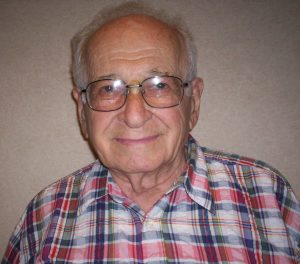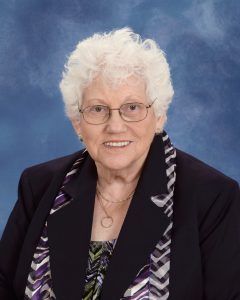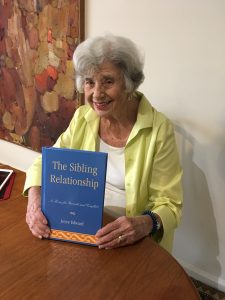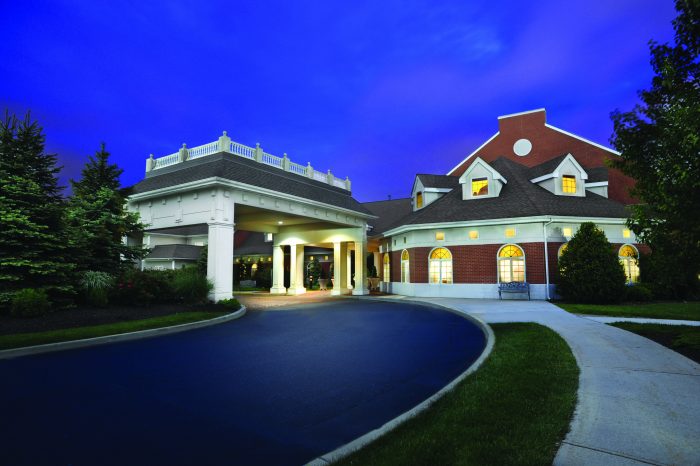Part one: Reflections on Jefferson’s Ferry’s 20th anniversary
Part one of three
Over its 20 years in existence, Jefferson’s Ferry has been home to a significant number of accomplished and creative older adults who have been groundbreakers, innovators, educators and artists. All were original thinkers with a desire to do something that hadn’t been done before, and many of these residents wrote books about their work, which can be found in the Jefferson’s Ferry library collection.

Gerhart Friedlander and Barbara Strongin: scientist and activist
Gerhart Friedlander and his wife, Barbara Strongin, were among the first residents of Jefferson’s Ferry when it opened in 2001. He was a nuclear chemist who emigrated to the United States in 1936 from Munich, Germany, when the Nazis forbade Jews from attending university. Friedlander studied at the University of California, Berkeley, receiving his doctorate in 1942. After gaining American citizenship in 1943, he was recruited to work on the Manhattan Project at Los Alamos, New Mexico. He later worked at Brookhaven National Laboratory for more than 30 years, conducting groundbreaking research on how high-energy particles trigger nuclear reactions. Friedlander also co-authored the textbook “Nuclear and Radiochemistry,” considered a classic in its field, with Manhattan Project colleague Joseph W. Kennedy. The book has been translated into 18 languages, and over the years, was updated twice with other co-authors. He received honorary degrees from many universities and countries and was an active elected member of the National Academy of Sciences.
Friedlander died in 2009 at the age of 93.

Strongin has spent her adult life dedicated to improving the lives of women and girls on Long Island. She met her husband when he was the chair of the board and she was the chief executive officer of Planned Parenthood of Suffolk County. They both received the Family Planning Advocates of New York State award. One of three founding members of the Women’s Fund of Long Island, Strongin was also an adviser and contributor to the Herstory Writers Workshop. She has co-authored curricula and articles on the Jewish perspective of human sexuality and has been honored by the New York Civil Liberties Union (Suffolk County Chapter) and Family Planning Advocates of New York State. Also, she won in 2011 the Good Neighbor award from The Village Times Herald.
Strongin and Friedlander jointly received the Allard K. Lowenstein Memorial Award from the American Jewish Congress, Long Island Chapter, and were recognized by Newsday as “Long Islanders of the Century: Everyday Heroes.”
Strongin continues to reside in her independent living cottage at Jefferson’s Ferry.
Joyce Edward: author, advocate, activist
Joyce Edward enjoyed a long career as a respected and influential social worker psychoanalyst, teacher, writer and activist. The co-editor and co-author of several books showing the value of psychoanalytic theory in social work practice as well as in the analytic consulting room, she also authored a book on her own, “The Sibling Relationship.”

Edward holds a Master of Social Work from Case Western Reserve University and earned post-master’s certificates in psychoanalysis and psychotherapy.
“Therapists seek to help a patient understand what’s in their way, what’s keeping them from a congenial marriage, for example, or from exploring career options,” she said. “A therapist is a partner in the work. We do not tell you what to do but help identify what may be blocking you and what you can do for yourself to move past these obstacles.”
Edward attended Antioch College in Ohio, attracted by its then unusual work study program. With the intention of becoming an advertising copywriter, Edward was placed in a salesclerk position at Macy’s as part of her work experience. She was uncomfortable in the post and quickly realigned her course, gravitating toward social work after helping Southerners who were recruited to come to work in a bomber plant up North find housing during World War II. At home she was exposed to acts of kindness, generosity and caring for those less fortunate.
“My aunt, who was a social worker during the Depression, would say of the people she helped, ‘They are just people like us.’ At Antioch, there was an emphasis on helping others. For example, as students we helped integrate a barbershop and the local movie theater.”
Edward did not intend being a practicing analyst. Balancing motherhood and career, she first volunteered at a newly founded small private school for emotionally disturbed children. As the school grew, so did her role.
“It was a major and central working part of my life for 13 years and exposed me to psychoanalytic training,” she said. “As the social worker on the clinical team, I wanted more than a handmaiden role. I questioned the prevailing theory at the time that the cause of autism in children was ‘refrigerator parents’ who were cold and did not connect with their children. I saw the ‘coldness,’ when it was observed, as frequently being the result of living with an autistic child, whose needs are tremendous and time consuming. I realized that I had to get more training to gain prestige and acceptance of my ideas, so I enrolled in an analytic training course of study.”
Upon publishing an article on her thoughts and observations, Edward was asked to write a book on the subject. She wrote “Separation-Individuation” collaboratively with two colleagues, with each contributor writing several chapters. The book was well received and provided the basis for greater discussion and ideas about the developmental process that led to subsequent studies, articles and books.
After 13 years at the school, Edward took a position in the Freeport Public Schools in a program funded by Democratic President Lyndon Johnson’s “war on poverty.” When the funding for this program ceased, she opened a small private practice and continued with this until she retired. During these years she also taught in the schools of social work at Adelphi University, Hunter College and Smith College as well as in two analytic training programs.
With the introduction of managed care into the mental health system, Edward and her colleagues founded the National Coalition of Mental Health Professionals & Consumers. The organization sought to restore privacy and to return to the clinician treating a patient their decision-making role.
Edward has lived in an independent living apartment at Jefferson’s Ferry for more than 14 years. Over that time, she has served on the residents council and the health committee, the social activities committee, the education committee as well as others. Through Stony Brook University’s OLLI program, she enjoys courses via Zoom, which currently include a political discussion newsroom, a music course with essayist David Bouchier and a class on the work of Leonard Bernstein.
An avid reader, she participates in book club discussions, one at the Emma S. Clark Memorial Library and the other at Jefferson’s Ferry. Recent reads include “Hamnet” by Maggie O’Farrell, “White Teeth” by Zadie Smith and works by Edith Wharton, George Eliot, George Packer and Anne Applebaum.
According to Edward, the best thing about Jefferson’s Ferry is the people, the residents and the staff — there are many interesting, knowledgeable and accomplished people. “More importantly is the understanding and support that we offer each other,” she said. “The residents have an appreciation of each other gained through our ages and experiences and have come to recognize what’s important in life.”
Linda Kolakowski is vice president of Residential Life at Jefferson’s Ferry Life Plan Community in South Setauket.







